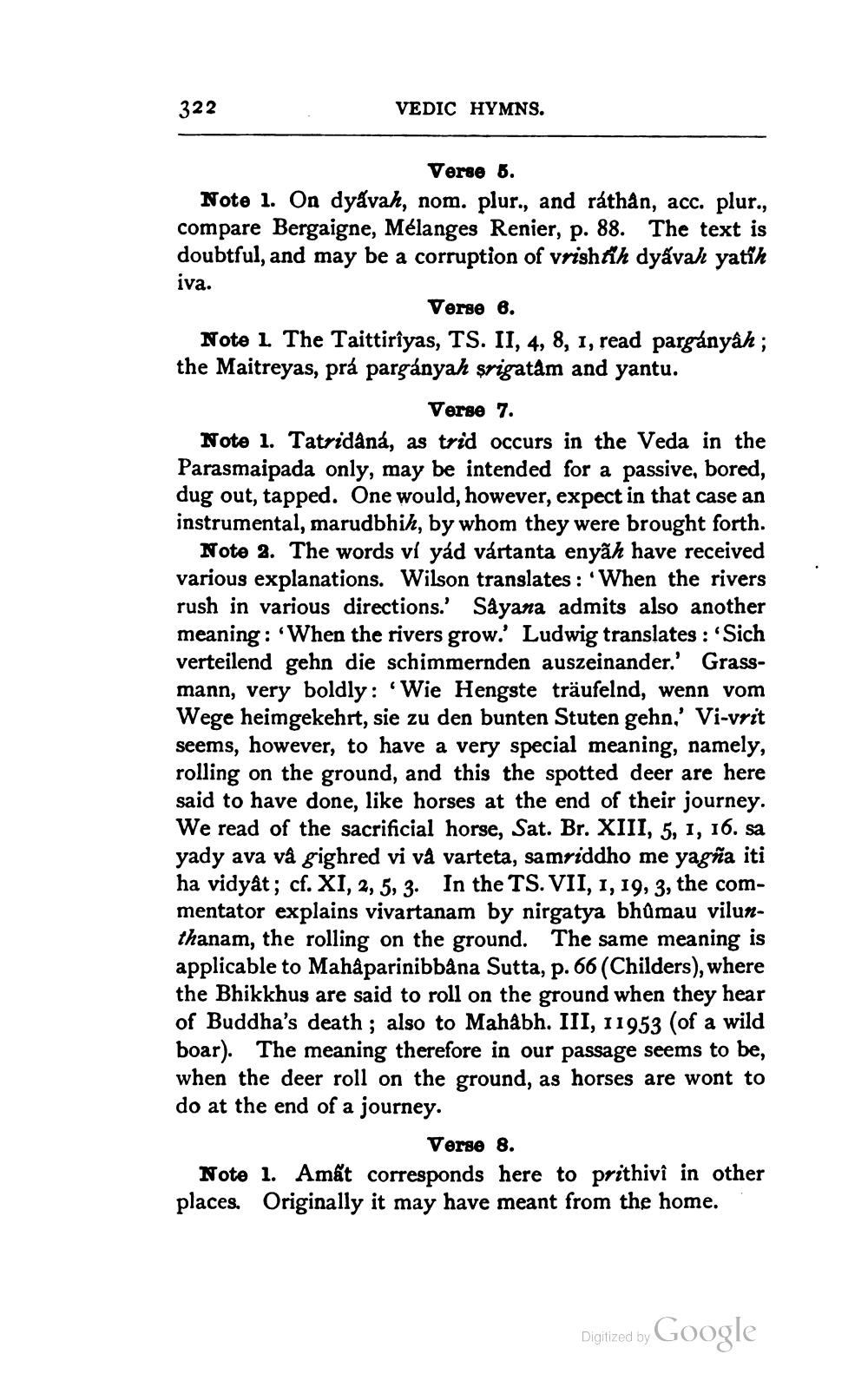________________
322
VEDIC HYMNS.
Verse 3. Note 1. On dyavah, nom. plur., and ráthân, acc. plur., compare Bergaigne, Mélanges Renier, p. 88. The text is doubtful, and may be a corruption of vrishtih dyával yatih iva.
Verse 6. Note 1. The Taittirîyas, TS. II, 4, 8, 1, read pargányâh ; the Maitreyas, pra pargányah şrigatam and yantu.
Verse 7. Note 1. Tatridaná, as trid occurs in the Veda in the Parasmaipada only, may be intended for a passive, bored, dug out, tapped. One would, however, expect in that case an instrumental, marudbhih, by whom they were brought forth.
Note 2. The words vs yád vártanta enyãh have received various explanations. Wilson translates : When the rivers rush in various directions.' Sayana admits also another meaning : When the rivers grow. Ludwig translates : Sich verteilend gehn die schimmernden auszeinander.' Grassmann, very boldly: "Wie Hengste träufelnd, wenn vom Wege heimgekehrt, sie zu den bunten Stuten gehn,' Vi-vrit seems, however, to have a very special meaning, namely, rolling on the ground, and this the spotted deer are here said to have done, like horses at the end of their journey. We read of the sacrificial horse, Sat. Br. XIII, 5, 1, 16. sa yady ava và gighred vi và varteta, samriddho me yagña iti ha vidyât; cf. XI, 2, 5, 3. In the TS. VII, 1, 19, 3, the commentator explains vivartanam by nirgatya bhūmau vilunthanam, the rolling on the ground. The same meaning is applicable to Mahaparinibbana Sutta, p. 66 (Childers), where the Bhikkhus are said to roll on the ground when they hear of Buddha's death ; also to Mahâbh. III, 11953 (of a wild boar). The meaning therefore in our passage seems to be, when the deer roll on the ground, as horses are wont to do at the end of a journey.
Verse 8. Note 1. Amất corresponds here to prithivi in other places. Originally it may have meant from the home.
Digitized by
Digilzed by Google




